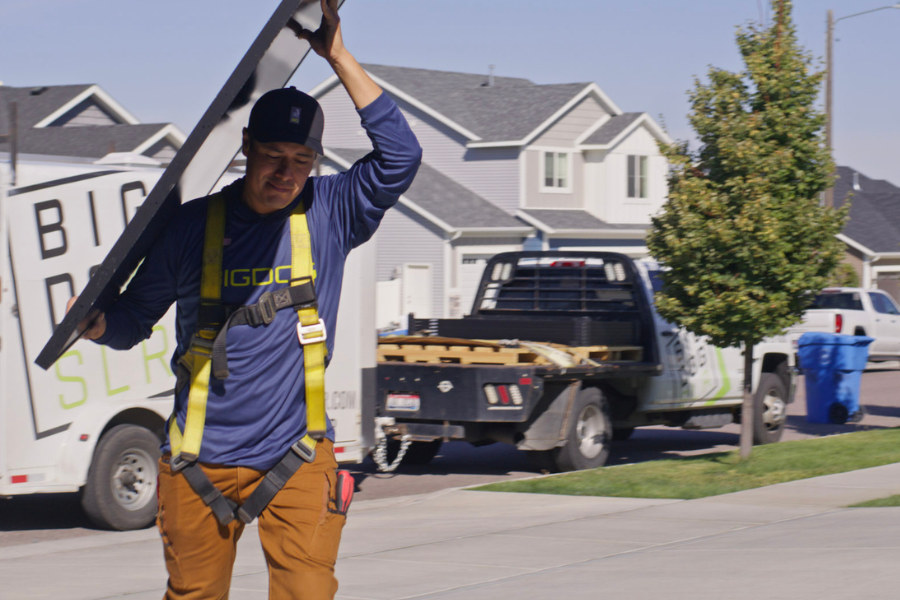If you're a Grand Junction homeowner, 2025 could be your best and possibly last big year to go solar. Thanks to a mix of new federal and state legislation, expanded local programs, and some looming policy changes, the landscape for residential solar in Grand Junction is shifting fast.
Understanding the benefits and risks of these changes is essential if you want to lock in the best incentives before they disappear.
The Bright Side: Incentives That Make Solar Shine
One of the biggest draws for homeowners right now is the Federal Investment Tax Credit (ITC), which allows you to deduct 30% of your solar installation cost from your federal taxes. For a typical $20,000 system, that’s a $6,000 savings, bringing the net cost to $14,000. But here’s the catch: this credit may end or be significantly reduced after December 31, 2025, depending on the outcome of a proposed bill in Washington known as the “Big Beautiful Bill.”
On the state level, Colorado continues to be a solar-friendly place. Homeowners benefit from:
- A sales tax exemption (saving 2.9% on equipment)
- A property tax exemption, meaning solar won't increase your home’s assessed value
- Access to RENU loans, which offer up to $75,000 in low-interest financing for energy upgrades including solar with often with $0 down.
In Grand Junction, specific local programs sweeten the deal even more. For example, Black Hills Energy offers up to $1,000 in rebates for income-qualified households, and Energy Smart Colorado provides rebates ranging from $500 to $2,500 depending on your location and eligibility.
Community Solar and COS4A: More Ways to Go Green
Not every home in Grand Junction is a perfect fit for rooftop solar. But that doesn't mean you're out of luck.
Recent legislation has modernized Colorado’s community solar programs, making it easier for renters and those with shaded or poorly oriented roofs to participate. Now, more Grand Junction residents can subscribe to shared solar installations and still cut their electricity bills.
There’s also the launch of Colorado Solar for All (COS4A)—a new, $156 million initiative funded by the EPA. Rolling out over 2025 and 2026, COS4A aims to bring solar access to lower-income households, including those who historically couldn’t afford installation or didn’t own their homes.
How Does the Big Beautiful Bill Shade Solar in Grand Junction?
While there’s a lot to celebrate, the picture isn’t all sunshine.
The proposed federal “Big Beautiful Bill” could slash or eliminate the 30% federal tax credit after this year. If you're considering solar, you'll need to have your system installed and operational before the end of 2025 to qualify.
And while Colorado is working to simplify solar permitting, many local homeowners still face delays and red tape. The reforms aimed at streamlining the process haven’t gone as far as advocates had hoped.
Also worth noting: Xcel Energy’s Solar*Rewards program for 2025 has already hit its budget cap, meaning Grand Junction homeowners connected to Xcel may have to wait until 2026 for that specific rebate to become available again.
Bottom Line: Solar Still Makes Sense, But Don’t Wait
Despite the challenges, solar remains a smart investment for Grand Junction residents. It can cut your electric bill, increase your home’s value, and reduce your carbon footprint all while taking advantage of thousands of dollars in available incentives.
But the window may be closing. If you want to take full advantage of the 30% federal tax credit and local rebates, you’ll need to act fast, get a quote and let's get you solar independent with Big Dog Solar!
Frequently Asked Questions
What is the Big Beautiful Bill and how does it affect solar in 2025?
The Big Beautiful Bill is a proposed federal law that could reduce or end the 30% solar tax credit after December 2025, making it more expensive to go solar.
What solar rebates are available for Grand Junction homeowners in 2025?
You may qualify for a 30% federal tax credit, up to $2,500 in local rebates, and $0-down RENU loans from the state of Colorado.
Can renters in Grand Junction get solar too?
Yes! New community solar laws in Colorado let renters and homes that can’t install rooftop panels join shared solar projects and save on power bills.
Why should I go solar in 2025 instead of waiting?
Many top incentives like the federal tax credit may disappear by the end of 2025. Acting now helps you lock in savings and avoid future policy cuts.




.png)








